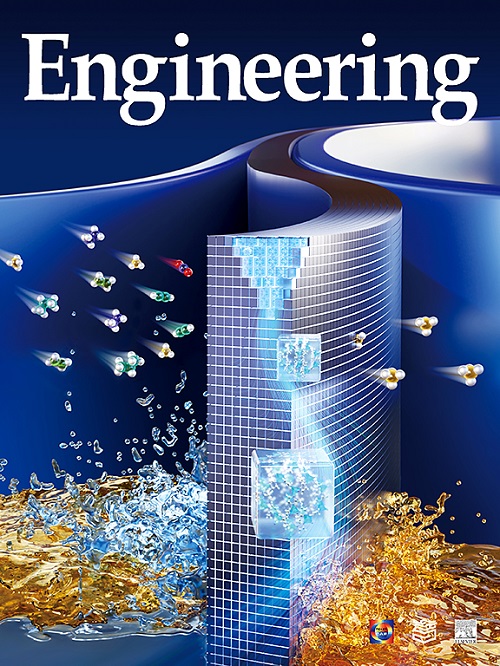Rules governing general assembly of microbial communities in engineered biotreatment processes
IF 10.1
1区 工程技术
Q1 ENGINEERING, MULTIDISCIPLINARY
引用次数: 0
Abstract
The principles of microbial community assembly in engineered ecosystems (particularly biotreatment processes) exposed to high-intensity environmental disturbances remain poorly understood. In this study, we conducted a meta-analysis of microbial communities across nine datasets from bioreactors operated under varied conditions. Null model-based analysis indicated that stochastic processes predominantly govern community assembly during contaminant-free selection phases or stable operation. In contrast, deterministic processes consistently govern initial acclimation of activated sludge. These processes then shift toward stochastic dominance as the operation stabilizes. The presence of environmental disturbances—such as shock, refeeding, or stress—during operation increases the relative contribution of deterministic processes to community structuring. Notably, low bioreactor performance is associated with deterministic assembly, whereas sustained stable operation corresponds to stochastic dynamics, irrespective of reactor type or condition. These findings were integrated across four categories of biotreatment operations to illustrate how specific disturbances influence microbial community succession and performance stability. This work advances the theoretical understanding of microbial dynamics in engineered systems and offers practical insights into linking community assembly mechanisms with bioreactor function.管理工程生物处理过程中微生物群落总体集合的规则
暴露于高强度环境干扰的工程生态系统(特别是生物处理过程)中微生物群落组装的原理仍然知之甚少。在这项研究中,我们对不同条件下运行的生物反应器的9个数据集的微生物群落进行了荟萃分析。基于零模型的分析表明,在无污染选择阶段或稳定运行阶段,随机过程主要控制群落聚集。相反,确定性过程始终控制活性污泥的初始驯化。随着操作的稳定,这些过程转向随机优势。在运行过程中,环境干扰的存在,如冲击、再喂食或压力,增加了确定性过程对社区结构的相对贡献。值得注意的是,低生物反应器性能与确定性装配有关,而持续稳定的运行与随机动力学有关,而与反应器类型或条件无关。这些发现整合了四类生物处理操作,以说明特定干扰如何影响微生物群落演替和性能稳定性。这项工作推进了对工程系统中微生物动力学的理论理解,并为将群落组装机制与生物反应器功能联系起来提供了实践见解。
本文章由计算机程序翻译,如有差异,请以英文原文为准。
求助全文
约1分钟内获得全文
求助全文
来源期刊

Engineering
Environmental Science-Environmental Engineering
自引率
1.60%
发文量
335
审稿时长
35 days
期刊介绍:
Engineering, an international open-access journal initiated by the Chinese Academy of Engineering (CAE) in 2015, serves as a distinguished platform for disseminating cutting-edge advancements in engineering R&D, sharing major research outputs, and highlighting key achievements worldwide. The journal's objectives encompass reporting progress in engineering science, fostering discussions on hot topics, addressing areas of interest, challenges, and prospects in engineering development, while considering human and environmental well-being and ethics in engineering. It aims to inspire breakthroughs and innovations with profound economic and social significance, propelling them to advanced international standards and transforming them into a new productive force. Ultimately, this endeavor seeks to bring about positive changes globally, benefit humanity, and shape a new future.
 求助内容:
求助内容: 应助结果提醒方式:
应助结果提醒方式:


